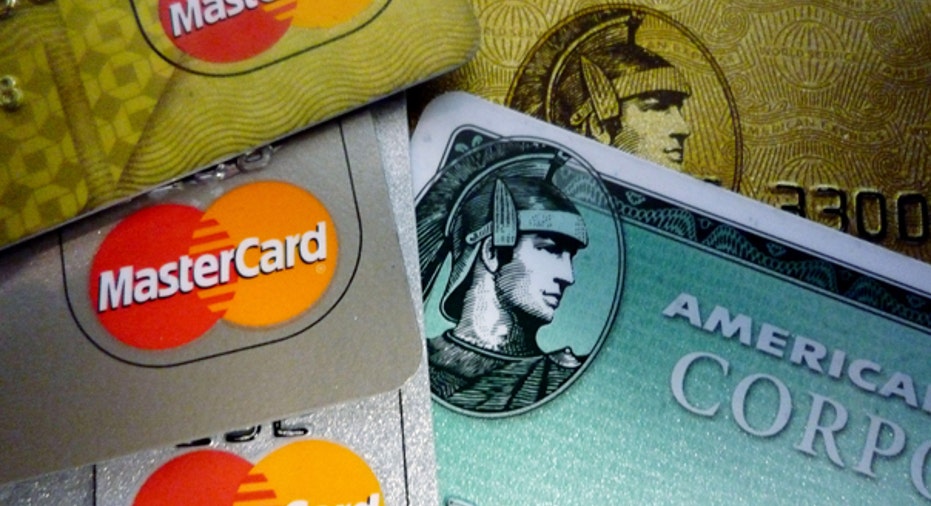4 Ways Credit Unions Help Raise Credit Scores

CheckingCredit Union How Credit Unions Help Raise Credit Scores
In the aftermath of the Great Recession, many consumers are still regaining their financial footing.
To help, credit unions are offering more tools aimed at rebuilding tarnished credit scores. These tools include low-cost secured loans, free credit counseling and online debt management courses. And since credit unions are member-owned, they're usually eager to help their members improve their scores or establish credit.
For the best credit union checking accounts, go to Bankrate.com.
To accomplish this, credit unions are taking a consultancy approach to debt rather than trying to generate high fees for these services, says Paul Gentile, an executive vice president of the Credit Union National Association.
This approach to rebuilding credit can be crucial, since a big chunk of our credit scores are linked to our payment histories. Getting back on track credit-wise raises FICO scores, which lenders use to calculate credit risk. Better FICO scores can translate into lower loan fees, says Randy Hopper, assistant vice president of credit card lending at Navy Federal Credit Union.
However, rebuilding your score is no slam dunk. It takes patience and discipline. But to take advantage of a credit union's tools, you must be a member, he says.
Here are four ways that some credit unions nurture your credit back to health.
Polish damaged scores with credit builder loans
Credit builder loans, which are usually given out in small amounts, help members rebuild their credit over time, says Ben Rogers, research director at the nonprofit Filene Research Institute. The number of credit unions offering these loans has increased since 2009, and they number almost 1,200 as of September 2012, according to Callahan and Associates.
For example, Digital Federal Credit Union in Massachusetts offers credit builder loans in amounts from $500 to $3,000 at a 5 percent interest rate. The loan amount is deposited into a savings account as collateral, and it can't be touched. When the loan is repaid, the member gets the balance in the account, including dividends. Monthly payments are reported to credit bureaus.
Other credit unions such as Texas-based Randolph Brooks Federal Credit Union and Virginia-based Langley Federal Credit Union also offer credit builder accounts. But loan rates can vary widely, so it pays to check the fine print.
Get free credit counseling
Many credit unions offer free credit counseling without advertising it, Rogers says. For example, North Carolina-based Charlotte Metro Credit Union started its free credit counseling program two years ago. "Some of our members need help managing their finances," says Susan Coughlin, electronic delivery and member retention manager at Charlotte Metro Credit Union.
As part of the program, Charlotte Metro Credit Union members are usually offered at least three credit counseling sessions, focusing first on cash flow analysis.
"Most people don't understand their full financial situation," Coughlin says. "We provide a good overview. This is a safe space."
Members that take the program do eventually see increases in their credit scores, she says. "The counseling helps create a more financially healthy member," she says.
Some other credit unions like Santa Cruz Community Credit Union in California partner with nonprofit agencies to offer free one-on-one counseling via phone or in a face-to-face meeting.
Take advantage of online tools
Credit unions offer many credit-building tools, says Sue Knott, a branch manager at Nebraska-based SAC Federal Credit Union. Her credit union has free online resources, such as a blog on credit repair that anyone can use. There's also a free, downloadable e-book called "The Building Blocks of Credit" on the SAC site that covers the basics of building or rebuilding credit.
"It's an online teaching tool," Knott says.
Other credit unions like North Carolina-based Self-Help Credit Union have partnered with Balance Financial Fitness to offer free educational tools, such as online financial management, along with help from a toll-free information hotline staffed by certified counselors. And Madison, Wis.-based Summit Credit Union, along with others, links to a free online tool for paying off debt called SavvyMoney Checkup. By plugging in your financial data, you can set payment goals and get out of debt faster, says Rogers.
"You get a score and a road map," he says.
Establish credit with secured cards
A secured credit card can be a creditworthy tool for people with little or no credit histories. Typically, a savings account is used as collateral against a credit card loan. Your borrowing power builds over time, as you make more deposits into your account. Many credit unions offer secured credit cards, so there are lots of choices. Some even waive annual fees and give you free credit scores.
"Secured cards are the first step for people who wouldn't qualify for a regular credit card," Rogers says. "However, credit unions usually don't promote them. So you'll have to check your credit union's website."
For example, Navy Federal Credit Union has its nRewards card. The minimum deposit to get the card is $500. After that, the card works like a normal credit card. Members earn rewards, and there's no annual fee. The credit union also reports to all three credit reporting agencies.
"Lots of other secured cards can be expensive," since people with low credit scores are typically charged higher interest rates and fees than people with good credit, says Navy Federal Credit Union's Hopper.
Some credit unions like Utah-based America First Credit Union even offer secured credit cards with high limits. Its Visa card has credit limits of $200 to $15,000 and no annual fee. Still, there are some downsides to any secured card. Funds usually can't be touched, and interest rates can vary widely.
Copyright 2014, Bankrate Inc.



















